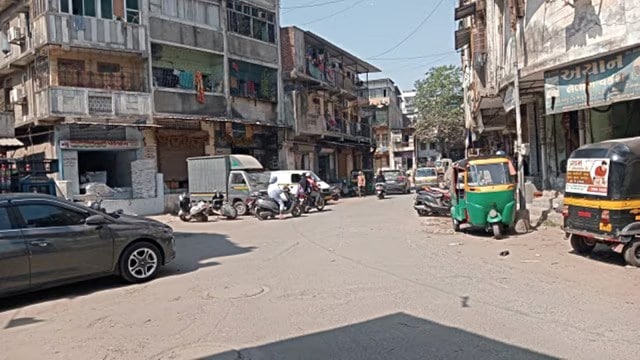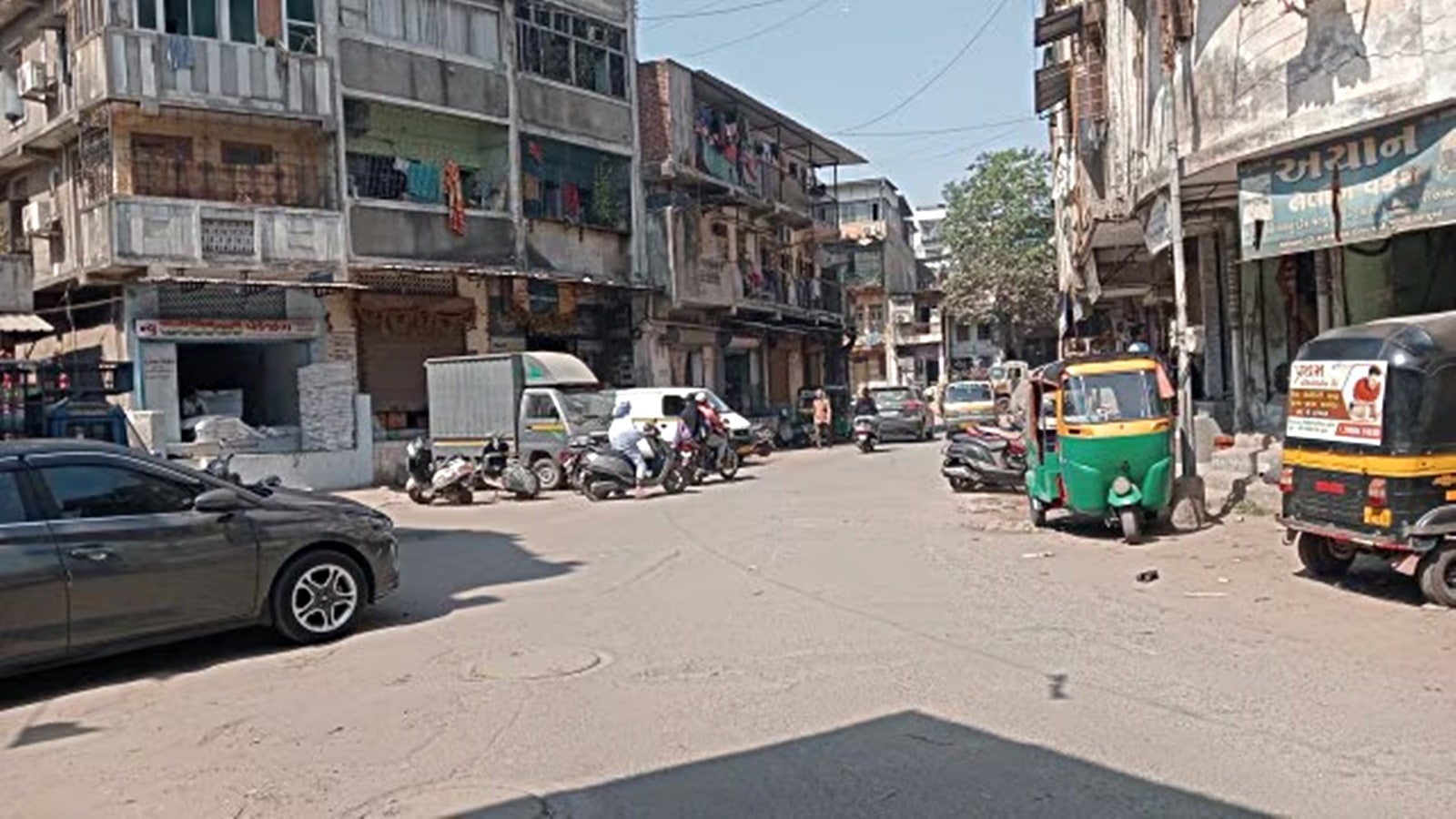
Feb 13, 2025 12:15 IST First published on: Feb 13, 2025 at 12:02 IST
Written by Sheba Pospisilova
Earlier in February, district officials in Surat sealed a home that had been sold by a Hindu family to a Muslim family in the Salabatpura area. The ostensible reason was that the sale violated the Gujarat Prohibition of Transfer of Immovable Property and Provision for Protection of Tenants from Eviction from Premises in Disturbed Areas Act (1991), commonly known as the Disturbed Areas Act, which requires property transfers in designated “disturbed” areas to be approved by the district collector through a formal application process. The allegation is that the Muslim buyer didn’t wait for the final approval of the concerned authorities before moving in. After almost a year, the team came for an inspection and spoke to the neighbours, whose objections led to the consequences. The joint family of 15 members is now scattered, living across different parts of the city.
Story continues below this ad
The dispute over property transfers between Hindus and Muslims is not new in Gujarat. In 2018, residents of Kesarbaugh Society in Vadodara objected to the transfer of a bungalow from a Hindu seller to a Muslim buyer on the grounds of religion, even though the collector had granted permission for the transaction. The High Court upheld the sale in 2023. Another Muslim woman has not been able to take possession of a flat allotted to her through the CM Awas Yojana scheme since 2018, as 33 of 462 residents of the society objected to her presence, citing the “threat and nuisance” she presented as a Muslim.
My research shows that the Disturbed Areas Act is being widely used to enforce the spatial segregation of Muslims in Gujarat. The practice is to designate Muslim areas and their neighbouring Hindu localities as “disturbed”, which brings them under the purview of the Act and triggers a formal approval process for any transfer of property. This process can then be used to control desegregation at the so-called border by denying permission for inter-religious transfers. The irony is that the law was first enacted in 1986 for precisely the opposite reason: To curb segregation based on religion by preventing the distress sale of property when public order was disturbed through riots or mob violence. How is this law now being used for different ends?
First, disturbance is widely understood as the “nuisance value” of Muslim presence — as the case of the Awas Yojana flat in Vadodara above shows — rather than riots or mob violence as defined under the Act. This allows the law to be interpreted and used as a tool to “protect” Hindus from Muslims. Second, the denial of permission for inter-religious transfers is often justified by claiming that preserving segregation prevents future violence between communities. Until the amendments passed by the Gujarat Legislative Assembly in 2020, which have now been stayed by the High Court, the law did not allow for its use in a preventive manner.
Story continues below this ad
Several studies have shown that the growing problem of residential segregation of Muslims is by no means limited to Gujarat. Caste-based residential segregation also remains stubbornly persistent in Indian cities. Some may argue that there is nothing exceptional about people wanting to live within the familiar environs of their own “communities”, citing the example of Jain- or Brahmin-only housing societies. But such societies represent the voluntary enclaves of dominant groups rather than the enforced segregation of stigmatised populations. With Gujarat’s long history of communal violence, it can also be argued that religious minorities “choose” to live among their co-religionists for safety and protection. But is it fear of violence or a choice freely made? Many Muslims express and enact the desire to live in mixed neighbourhoods rather than being consigned to Muslim-only areas.
most read
What distinguishes the case of Gujarat is that when the “ordinary” route of residential segregation based on stigmatisation and exclusion fails, the law steps in to enforce it. This process is aided by vigilante groups that drum up accusations of “land jihad” and make political capital out of everyday market transactions between citizens. Such use of the law violates the constitutional right to equality, to personal liberty, and to reside and settle anywhere in the country. It also violates Article 15, which prohibits discrimination based on religion. The law does not have to be used in this way. In fact, in countries with deep histories of racial prejudice such as the United States and South Africa, the law has been used to effectively desegregate cities, workplaces, schools and institutions. The Disturbed Areas Act has been challenged in the High Court by petitioners, and the matter is still sub-judice.
The Gujarat government has announced that it would amend the Act once again as a response to the petitioners’ objections regarding clauses added in 2020 that made the law even more stringent. Instead, it would do well to scrap this discriminatory law altogether and take steps to delegitimise continuing residential segregation based on religion and caste.
The writer teaches at King’s College, London


